This service creates a more supportive healthcare environment for lymphoedema and wound care patients and their families within the National Health Service (NHS), as well as give tools to nurses and administrative personnel to use anticipatory innovation in order to keep improving their services.
This service consist on:
A workshop and future roadmap using anticipatory innovation and backcasting to plan for specific activities and goals across a 10-year span
An initial design of a digital platform to better support patients and nurses throughout the care journey
The whole design process was conducted in collaboration with the Pioneer centre and the Future Nurse organisation and involved a comprehensive research phase, co-design activities, and iterative development and testing of design proposals.
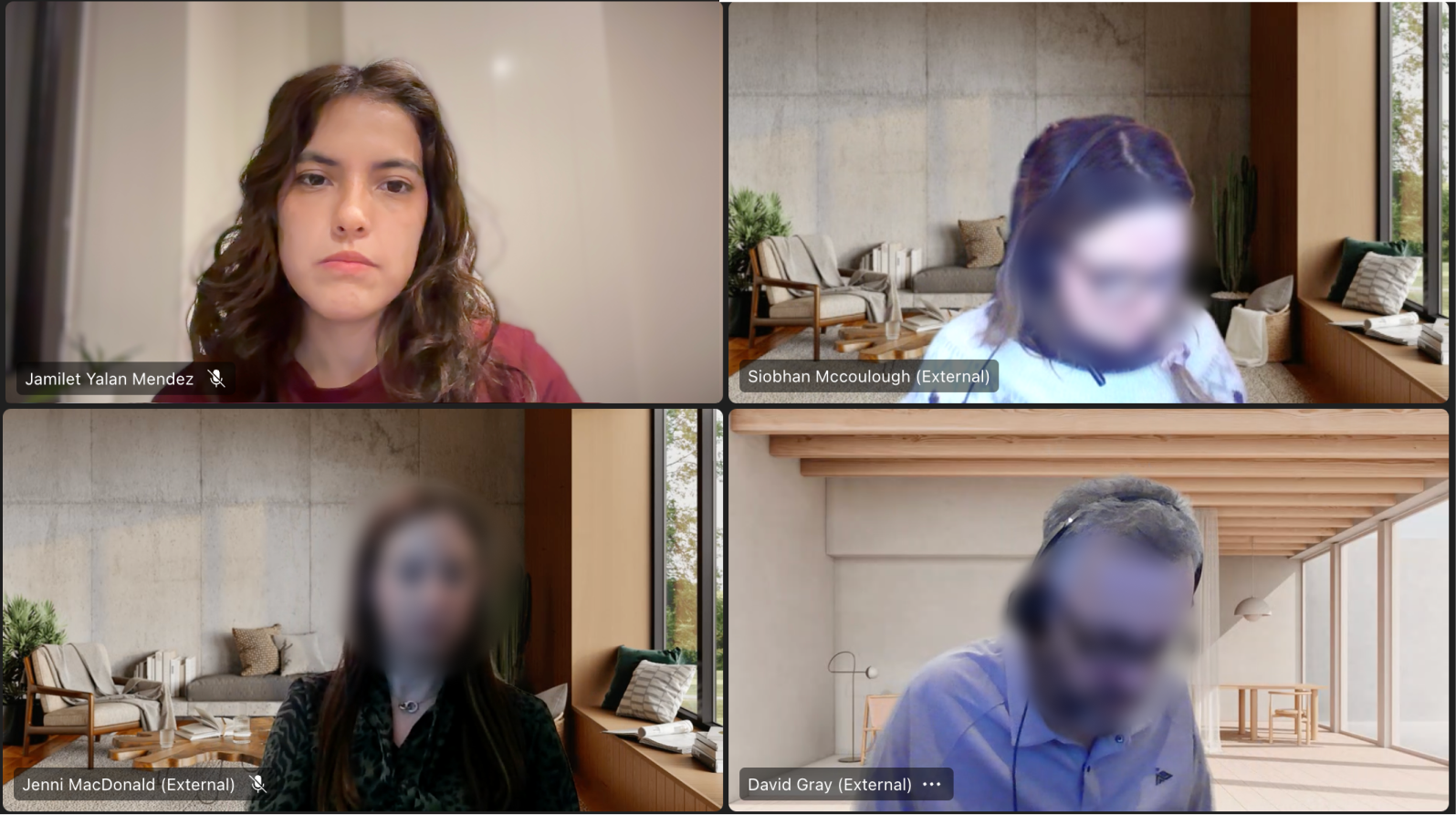
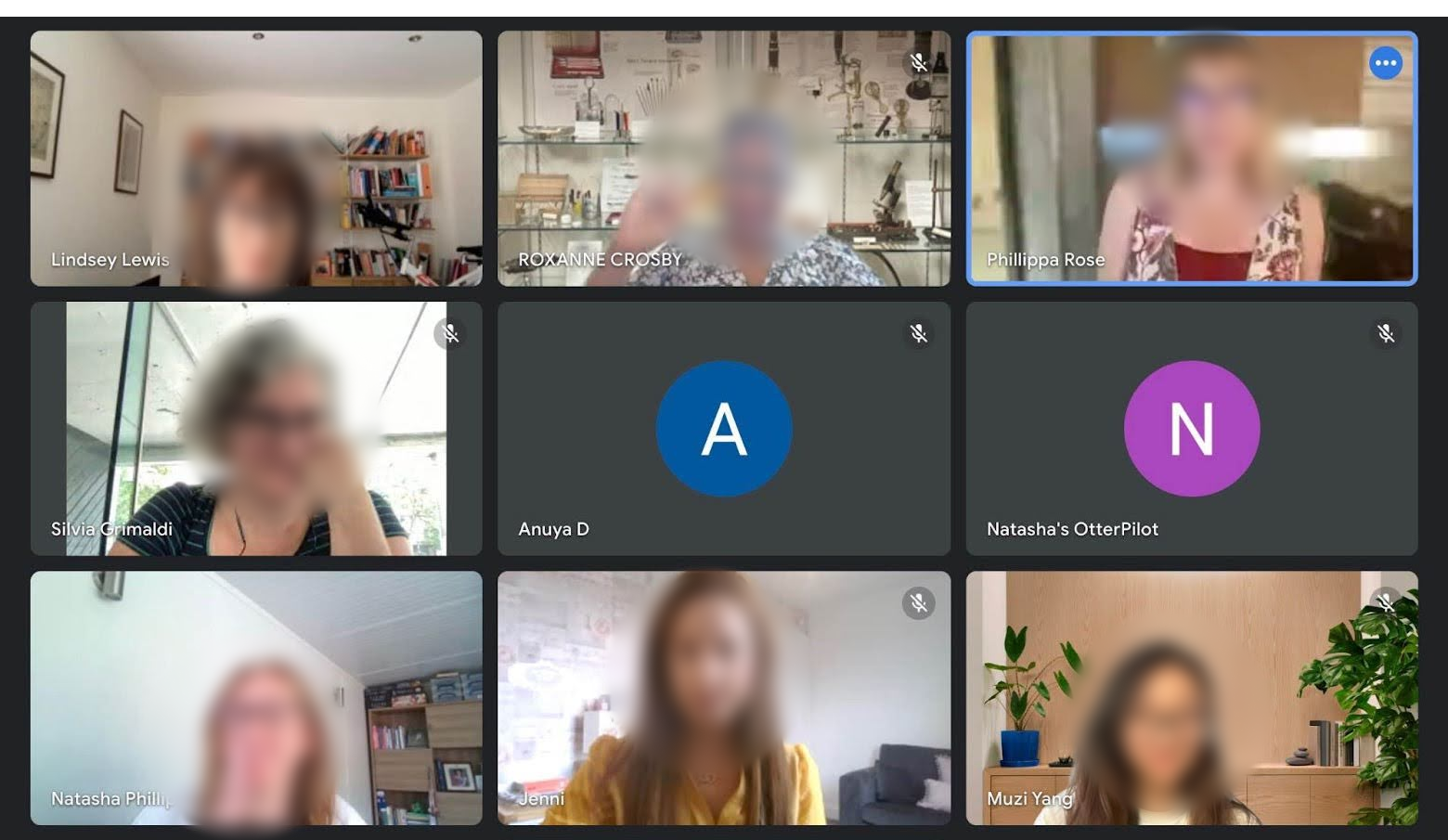
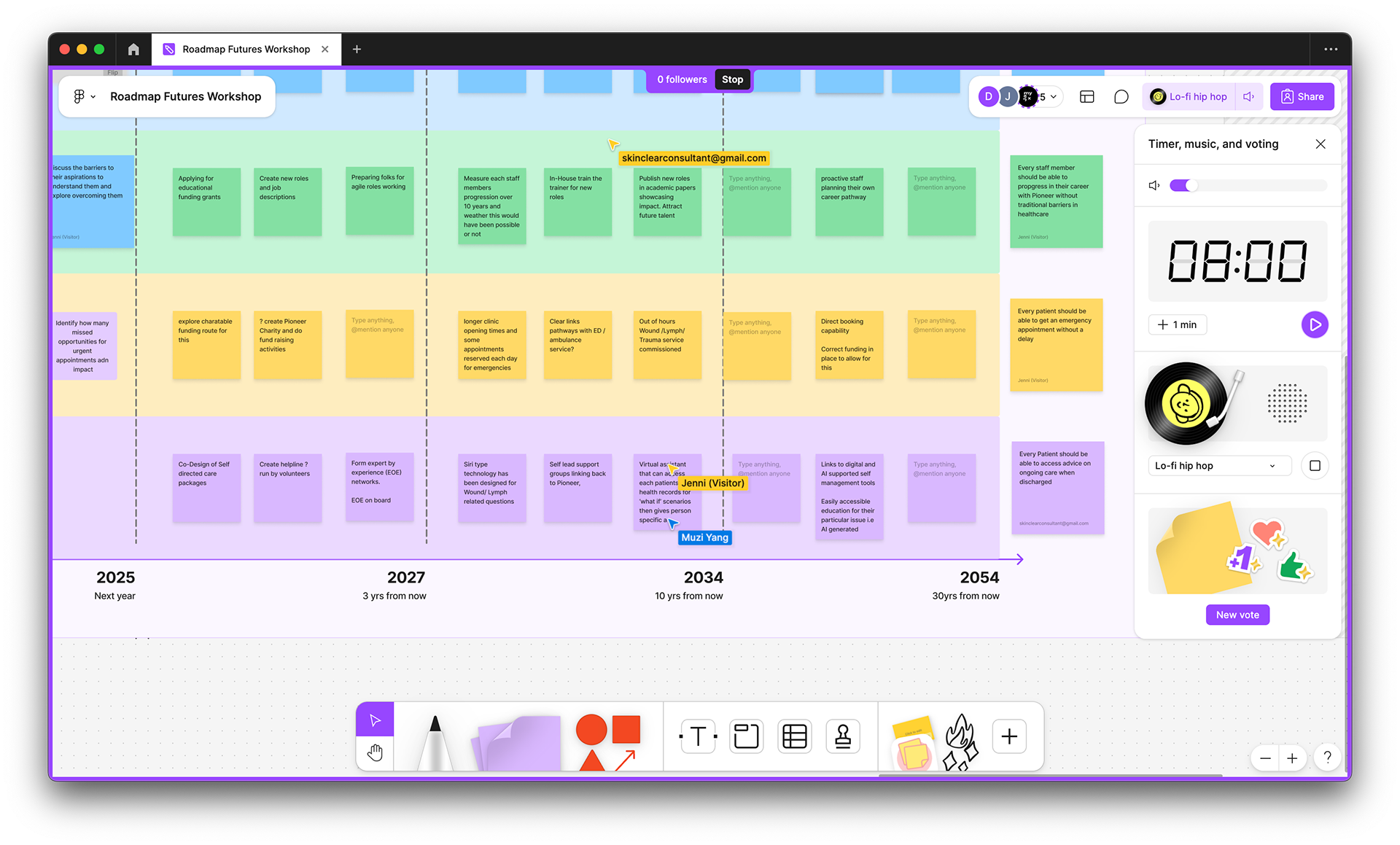
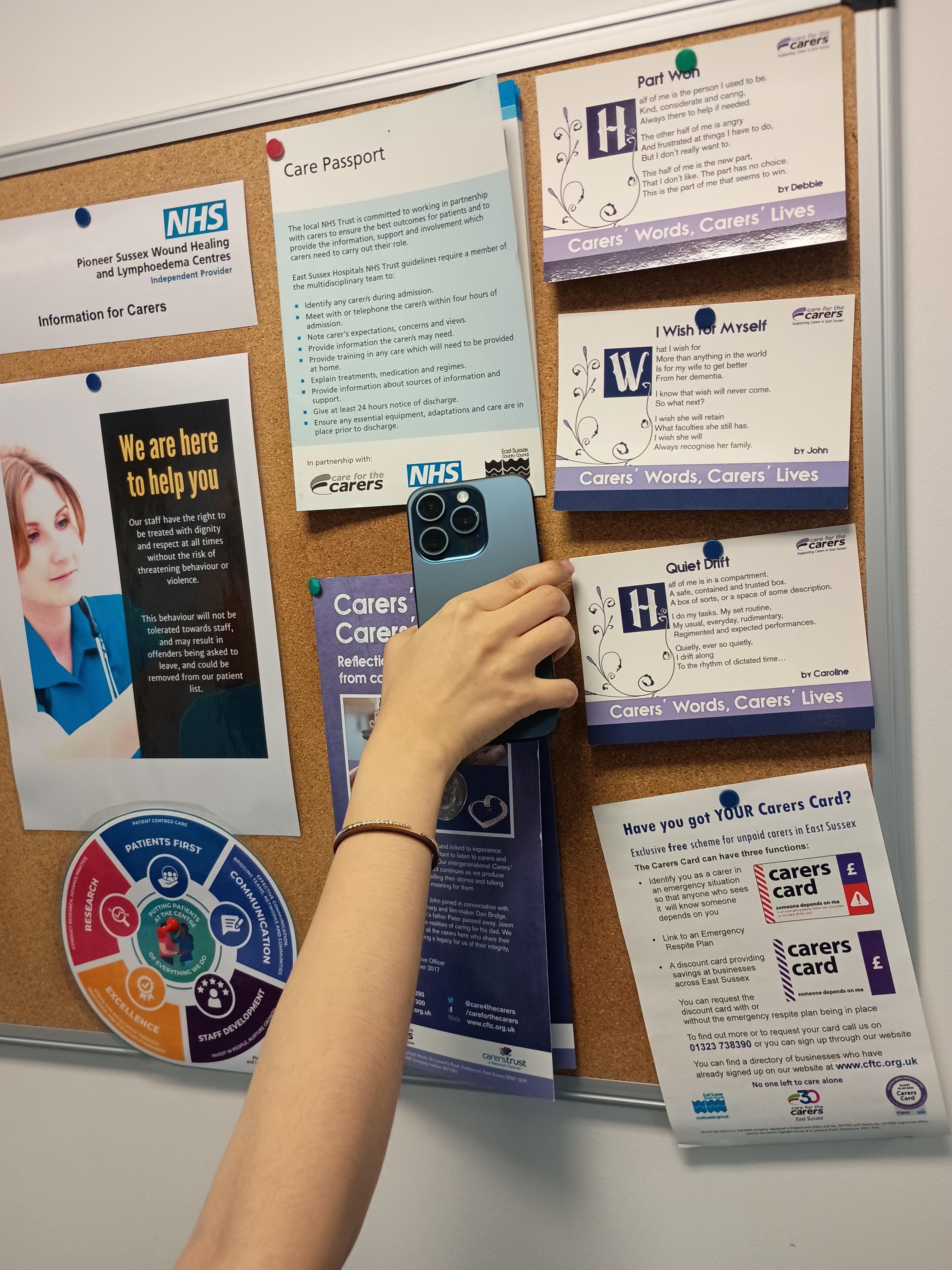
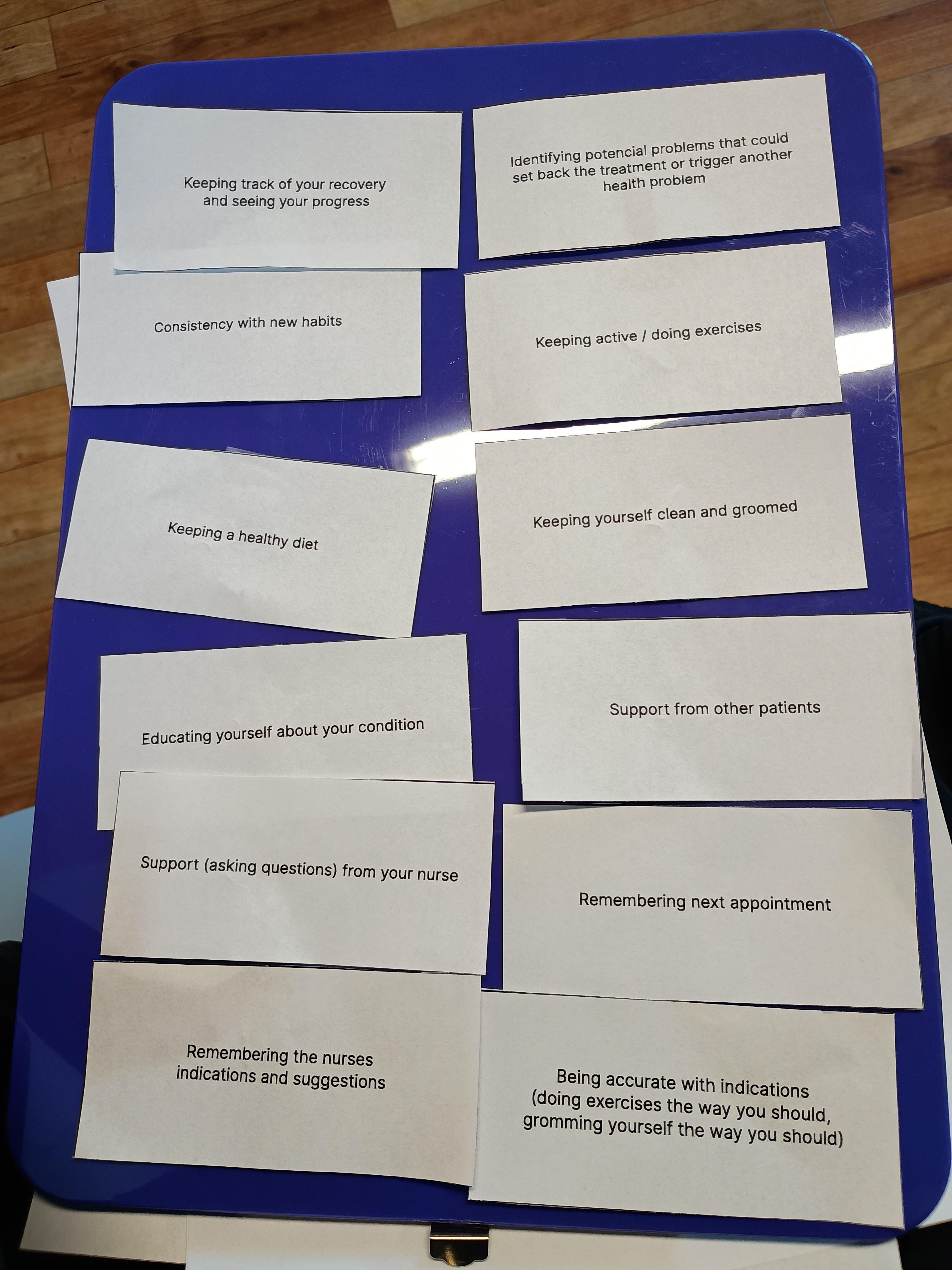
Some of the key findings gathered from the research conducted included:
- Patients struggle to understand and adhere to their full treatment plans
- Managing the emotional and psychological aspects of their condition is just as important as managing their physical conditions
- Caretakers play a crucial role in supporting daily care and treatment plan adherence, but many patients do not have a caregiver
- Regular follow-up appointments are essential for adjusting treatment plans but after some time, patients get appointments farther from each other and there is less support if they need it.


Problem scope
After analyzing the information gathered, 3 main pain points where discovered on the service workflow
How might we provide support for patients after they got treated so they can keep engaged in their care and avoid future recurrence or deoptimize the state of their condition?
This challenge was address using two key approaches:
Holistic Treatment Approach: Providing holistic treatment encompassing diet, fitness, and skincare; encouraging patients to persist with their full treatment plans; offering ongoing support and follow-up to ensure adherence; and integrating psychosocial support for patients and their caregivers
Anticipatory Innovation: Using anticipatory innovation techniques to envision a preferable future for lymphoedema and wound care services, developing practical action plans to achieve this vision, and engaging stakeholders in future planning and innovation.

